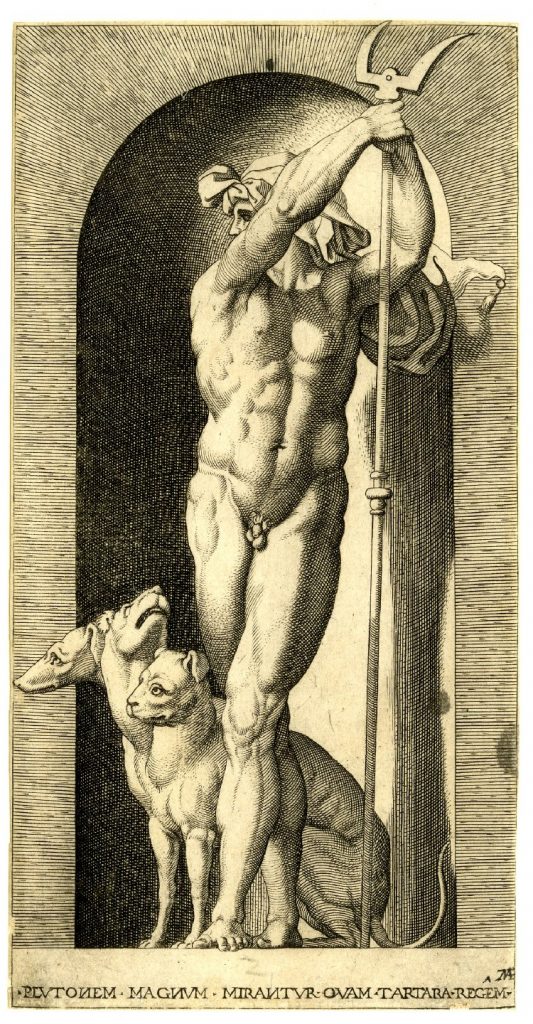More often than not, ancient Greek mythology (religion) served to explain a series of legends. Different from modern religions such as Christianity, Judaism, or Islam, ancient Greek religion was an anthropomorphic polytheism, meaning that ancient Greeks believed in a multitude of individual divine figures that took on human forms and emotions.1 Furthermore, ancient Greek mythology lacked much of the asceticism and mystical enthusiasm that is more commonly seen in modern religions. Most of the highly developed anthropomorphic and comparative rationalism of the ancient Greek religious thought can be accredited to Homer with the aid of his Iliad and Odyssey.2
The people of the ancient Greek civilization were often in a state of weakness under the power of nature; therefore, they relied heavily on the divine individuals of Olympus. Why? They believed that the forces of nature were under the control of their gods. In short, the relationship between humans and divine beings was that of a retribution justice.3 If humans did anything to offend the gods, then those gods would strike back in some sort of fashion to restore justice.4 Therefore, humans were constantly looking to please the gods in fear of their wrath.
Out of the ancient Greek mythology came the god of the dead and the underworld, Hades. Hades had five other siblings: Zeus, Poseidon, Demeter, Hera, and Hestia, and they were all children of Cronus and Rhea.5 After defeating their parents (the Titans), Hades drew lots with Zeus and Poseidon to gain their respective domains. Hades was commonly thought to be a cold god, but he was never considered to be an evil divine figure. Furthermore, it is important to note that his realm, the underworld, should not be associated with the hell of Christianity.6 However, Hades was for the most part feared by all. Another name for the ancient Greek god was Ploutos and later adopted by the Romans as Pluto.7

The god of the underworld was the husband of Persephone (Zeus’s and Demeter’s daughter). Although she was Hades’ wife, she only lived with him during the winter time.8 Persephone was the divine goddess of agriculture and fertility. Therefore, the ancient Greeks accredited the change in nature (winter) to Persephone moving to the underworld. Persephone was unable to stay with Hades at all times due to interference from her mother Demeter. Zeus, however, was okay with the marriage of Hades and Persephone. Therefore, in order to set up the marriage, Zeus had to trick Persephone, so she could be abducted by Hades.9 However, Demeter interfered, and that is why Persephone spends half of the year with Demeter and the other half with Hades.
Furthermore, it is important to note the Greek perspective of the afterlife. Perspectives about the afterlife varied from each other based on their region in Greece as well as their time period in Greek history. The consensus was that the underworld was neither heaven nor hell.10 The sense that exists within Christianity, for example, was not present during the time of the ancient Greeks. Although Tartarus was present as a location within the underworld, the Greeks would not compare it to the equivalent of Christian hell. The way the Greeks saw it, the underworld was a place that everyone ended up after death.11 However, there were a few, including the philosopher Epicurus, that believed that the underworld did not exist at all. He believed that when the body died, the soul died with the body as well.12 A good portion of Greeks refused to believe such a pessimistic perspective of the afterlife. However, even the Greek traditional perspective of the underworld was not as popular despite many Greeks believing in it.
- Funk & Wagnalls New World Encyclopedia, 2016 s.v., “Greek Religion and Mythology.” ↵
- Funk & Wagnalls New World Encyclopedia, 2016 s.v., “Greek Religion and Mythology.” ↵
- Funk & Wagnalls New World Encyclopedia, 2016 s.v., “Greek Religion and Mythology.” ↵
- Funk & Wagnalls New World Encyclopedia, 2016 s.v., “Greek Religion and Mythology.” ↵
- Salem Press Encyclopedia, January, 2015, “Hades (deity),” by Joseph, Michael, DMin. ↵
- Salem Press Encyclopedia, January, 2015, “Hades (deity),” by Joseph, Michael, DMin. ↵
- Salem Press Encyclopedia, January, 2015, “Hades (deity),” by Joseph, Michael, DMin. ↵
- Salem Press Encyclopedia, January, 2015, “Hades (deity),” by Joseph, Michael, DMin. ↵
- Salem Press Encyclopedia, January, 2015, “Hades (deity),” by Joseph, Michael, DMin. ↵
- The Greenhaven Encyclopedia of Ancient Greece, 2007, s.v. “Underworld,” by Robert B. Kebric. ↵
- The Greenhaven Encyclopedia of Ancient Greece, 2007, s.v. “Underworld,” by Robert B. Kebric. ↵
- The Greenhaven Encyclopedia of Ancient Greece, 2007, s.v. “Underworld,” by Robert B. Kebric. ↵



186 comments
Pedro Mejia
Good job! I really liked your article. I learned a lot about the underworld and Hades. Well written!
Rafael Garcia-Gomez
Nice job! I really enjoyed how you illustrated the common misconception of Hades and evil. The Christian perspective helped develop such perspective. Good job on illustrating how Hades was not an evil guy. Furthermore, awesome job on illustrating how everyone ended up in the underworld, not just the bad people.
Rafael
Nice job! I really enjoyed how you illustrated the common misconception of Hades and evil. The Christian perspective helped develop such perspective. Good job on illustrating how Hades was not an evil guy. Furthermore, awesome job on illustrating how everyone ended up in the underworld, not just the bad people.
Albert Aguilar
Awesome article! I truly enjoyed the article. I had no idea that Hades was not associated to hell in ancient Greece. I had no idea that all people (both good and bad) ended up in the underworld. Well written!
Rafael
Wow! What an amazing article! I really enjoyed how you demonstrated the common misconception of Hades being portrayed as an evil figure. The Christian perspective can be blamed for Hades being associated as such. Well done on illustrating the view of ancient Greece on the topic of the afterlife. Amazing!
Cesar Acosta
This article brought a tear to my eye. This topic has never been interesting to me, but you managed to grab my attention and hold it for the entirety of the article. I never thought of Hades as anything more than the Greek Devil, but it’s interesting to learn that he played such a large role in the yearly lives’ of Greeks. Great work!
Jocelyn Alvarez Bibian
Very good article! I enjoyed reading about this Greek god who is mostly portrayed as the evil god. One of the most popular references to Hades as the god of hell is found in Dante Alighieri’s Inferno. I particularly remember how Dante mentions Cerberus in one of the circles of hell to implicitly refer Hades as the god of the underworld. There exist other writings that also have make popular this idea of Hades being evil. It was very interesting to read a different version, the actual portrayal of Hades in Greek mythology.
Amanda Cantu
Great article! Its always interesting learning about greek mythology. Especially enjoyed reading about Hades rather than Zeus who is usually the main topic of greek mythology. I like how you didn’t really focus on how Hades about how he is a bad guy but more of the background information.
John Rueda
Well written and interesting read! Brought me back to when I learned about Greek mythology and opened up my eyes to a lot of new interesting facts. Such as the beliefs of modern day religions and it’s interesting to see some commonalities as well as distinctions.
Great read overall. Nicely done.
Analina Devora
When I was in elementary and middle school (believe it or not) I would actively study Greek Mythology and loved the topic. Reading this article brought back many memories to those days. The thing that always intrigued me the most were the Greek’s ways of explaining the gods’ relationship with the events of nature. There was always an explanation for different occurrences and events of nature such as the changing of the seasons, why the sun rises and sets, etc. This may be the biased from my love of greek mythology but your article was definitely a favorite of mine. Well done.